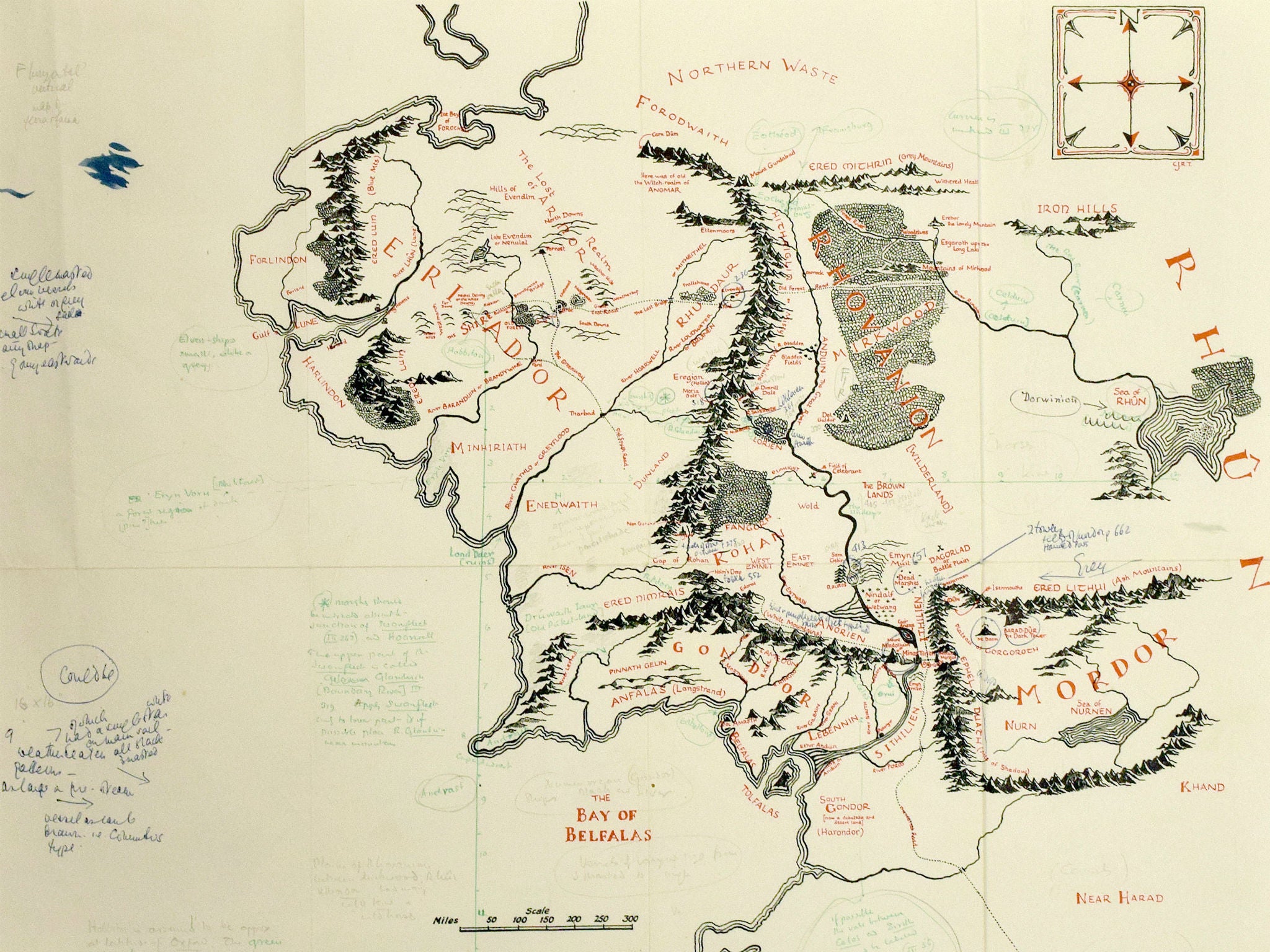Tolkien-annotated map of Middle Earth found loose in copy of Lord of the Rings
The map will sell for £60,000 later this month after being hailed as an "important document" by a Blackwell's specialist

Your support helps us to tell the story
From reproductive rights to climate change to Big Tech, The Independent is on the ground when the story is developing. Whether it's investigating the financials of Elon Musk's pro-Trump PAC or producing our latest documentary, 'The A Word', which shines a light on the American women fighting for reproductive rights, we know how important it is to parse out the facts from the messaging.
At such a critical moment in US history, we need reporters on the ground. Your donation allows us to keep sending journalists to speak to both sides of the story.
The Independent is trusted by Americans across the entire political spectrum. And unlike many other quality news outlets, we choose not to lock Americans out of our reporting and analysis with paywalls. We believe quality journalism should be available to everyone, paid for by those who can afford it.
Your support makes all the difference.Ever found yourself reading The Lord of the Rings and wishing you had a map of Middle Earth to help your imagination navigate Tolkien’s world just a little better? Finally, your wish has been granted after a hand-annotated map was found loose in a copy of the fantasy novel owned by illustrator Pauline Baynes.
Baynes worked with Tolkien to create a map for the trilogy, and notes show that the detail-loving author even went so far as to suggest flora and fauna for the land in each area.
Carefully drawn with mountain ranges and place names written in green and orange ink, the map shows that Frodo's home of Hobbiton is at the same latitude as Oxford and the fortress city of Minas Tirith was inspired by Italian city Ravenna. Other locations that influenced Tolkien’s vision of Middle Earth include Jerusalem, Cyprus and Belgrade.
A specialist at Blackwell’s Rare Books in Oxford, where the book was handed in, called the map an “important document” as it reveals the extent of Baynes and Tolkien’s collaboration for the first time.
It is believed that Baynes removed the map from another edition of the book while she worked on her own colour version for a 1970 publication by Allen & Unwin. Tolkien’s “exacting nature” is displaying in the multitude of descriptions and edits he gave her.
Tolkien fans can study the map for themselves at Blackwell’s before it is sold later this month for £60,000. The shop is also selling a range of work by Baynes, who died aged 85 in 2008, including her signed original Narnia drawings.
Join our commenting forum
Join thought-provoking conversations, follow other Independent readers and see their replies
Comments